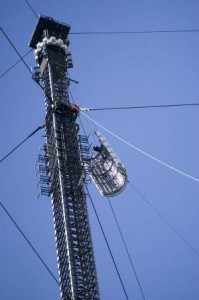 Media regulator Ofcom has signalled the go ahead for a reorganisation of the UK DTT system, a move that will enable reception of up to four HD channels, for viewers that choose to upgrade their reception equipment.
Media regulator Ofcom has signalled the go ahead for a reorganisation of the UK DTT system, a move that will enable reception of up to four HD channels, for viewers that choose to upgrade their reception equipment.
“This is a once in a lifetime opportunity to upgrade digital terrestrial television. It offers benefits for broadcasters – who will be able to launch new services without using any new spectrum – and viewers – who will have access to new channels and services on free to air,” said Ed Richards, chief executive, Ofcom.
Viewers in the North West will be first to benefit when the Granada television region completes its analogue switchover in 2009. The new channels will then be made available on a region-by-region basis until switchover is completed in 2012.
The launch of the HD channels is being made possible by moving channels from Multiplex B into Multiplexes 1, 2 and A. Multiplex B was allocated to the BBC at the start of Freeview in addition to the corporation’s gifted capacity in Multiplex 1.
The BBC Trust will continue to be responsible for part of the capacity in Multiplex B and this is likely to be used for BBC HD. The remaining capacity will be awarded to the commercial public service broadcasters through a competitive bidding process.
Welcoming the Ofcom statement, the BBC Trust said it was suspending its consideration of a non-service application concerning the reorganisation of the spectrum that had been made by the BBC Executive, in partnership with ITV, Channel 4 and Five, until Ofcom had completed its process.
Ofcom is taking advantage of both MPEG-4 and the new DVB-T2 technology that, although it has yet to be finalised, is expected to deliver savings of up to 30% of capacity.
Although Ofcom has answered the requests from broadcasters and manufacturers to provide an upgrade path to HD, there remains concern that 4 HD channels will still be dwarfed by the offers from cable and satellite, the Digital TV Group voicing its own concerns and working on an alternate plan.